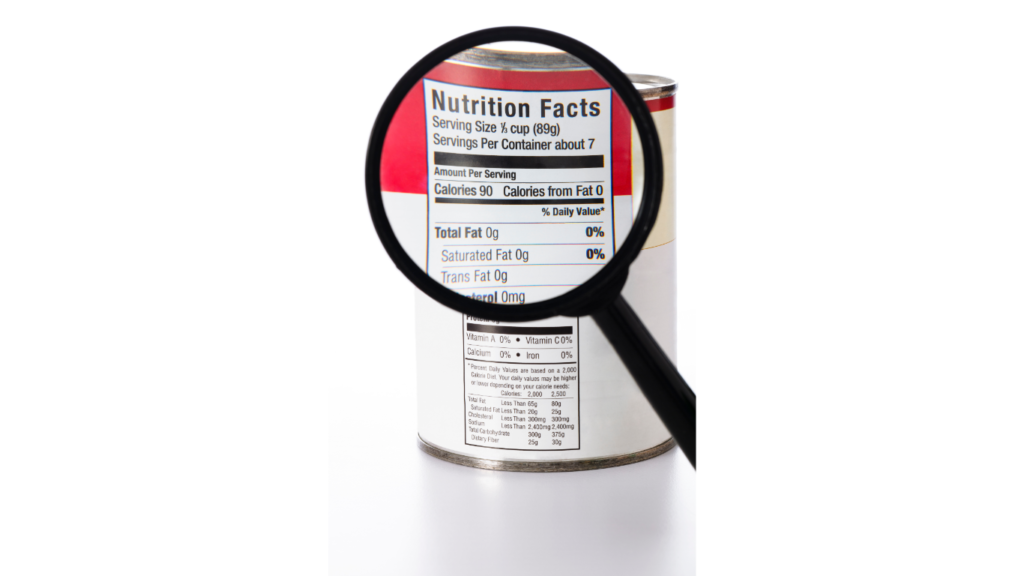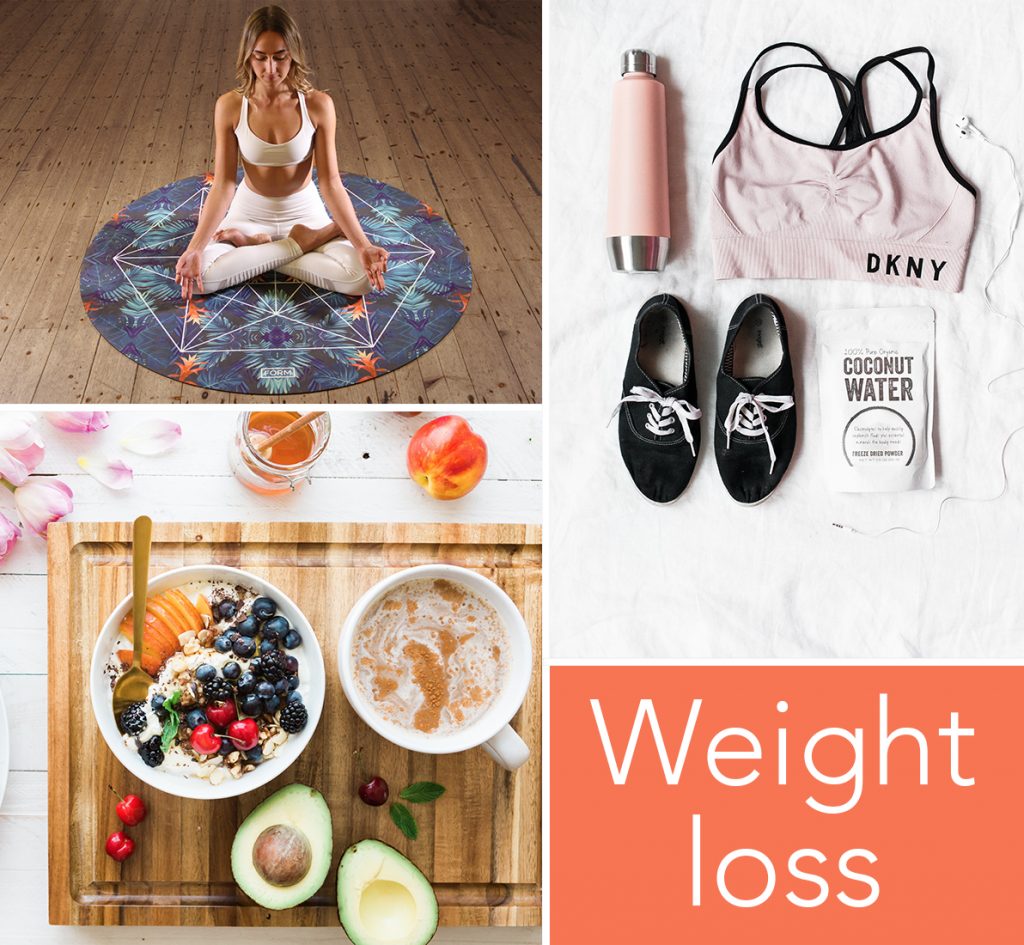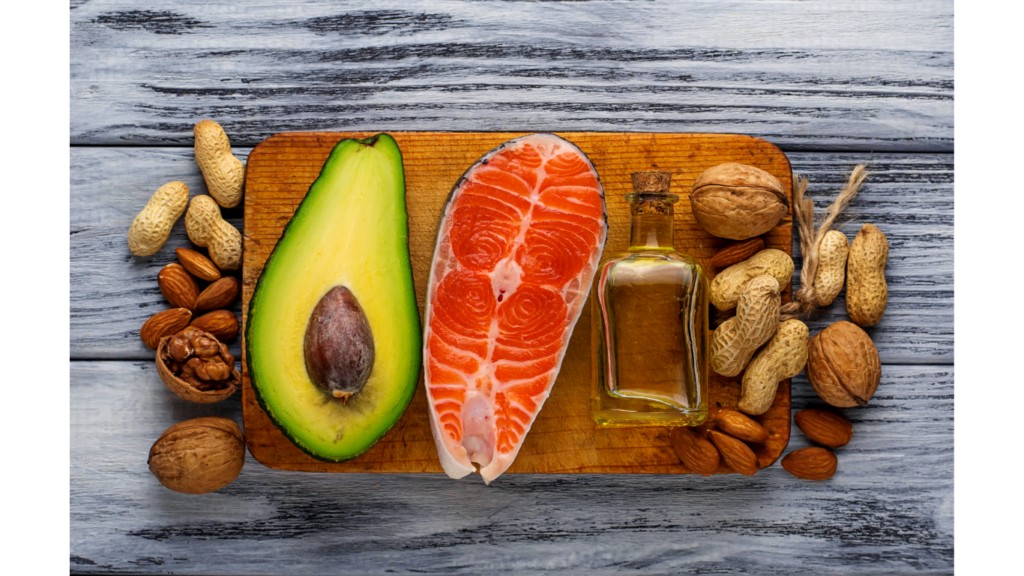Gallbladder Hospital Admissions Surge: Insights from a Specialist Gut Dietitian

There has been a concerning surge in hospital admissions related to gallbladder issues. As a Specialist Gut Dietitian with expertise in chronic health conditions, I find it imperative to shed light on this growing health concern
Understanding Nutritional Labels: A Comprehensive Guide

Nutritional labels on food products are often dense with information, often eligible in tiny writing and finding the right translation can take forever! Despite all these hurdles deciphering them correctly is vital for making informed dietary choices. Gillian Killiner Consultant Dietitian is an expert in this field and understands the significance of this task. In this blog Gillian provides a comprehensive guide on how to read nutritional labels correctly. In this detailed breakdown, she will walk you through the intricate details of nutritional labels, ensuring that you can make healthier choices with confidence. Decoding the Serving Size The first crucial aspect of any nutritional label is the serving size. This seemingly basic piece of information holds the key to understanding the rest of the label. It’s not just about how much you are eating but how much the manufacturer considers a standard serving. Keep an eye out for this information, often presented in both familiar units like cups or pieces and grams for precise measurements. A nice shop bought buttercream sponge is a great example! 490g in weight its pretty petite coming out of the box. If generous you may cut this into 4 big pieces to enjoy with others or if needing it to stretch maybe 6 pieces seem about right. However the nutritional recomendations per portion are calculated for 8 slices! and for 1/8th of the cake you are consuming 250kcals, 11.5g fat, 2.5g protein, 33g carbohydrates, 21g sugar, 0.7g fibre, 0.4g salt. You can see how easy it is to underestimate your intake if not checking the portion size! Cut into 4 generous portions and wow you have a little piece of cake with a lot of fat, sugar and energy! Calories: Understanding the Energy Content on a Nutritional Label Calories (kcals) provide your body with energy, but it’s important to note that not all calories are created equal. The caloric content on a nutritional label represents the energy you’ll get from one serving of the product and as mentioned above these can be deceiving! I actually am not a fan of kcal counting – it can be useful but only if you are completely new to all of this and only for a short few weeks to get you thinking. Kcal counting is not enjoyable can be very stressful and for some not actually address the food choices. You can eat a lot of rubbish food and be below your kcal requirements. Yes you will lose weight if you count and lower your intake and eat well – this has to be for life so it needs to suit you, taste good, fit with your lifestyle and your bank balance. Fats: The Good and the Bad Dive deeper into the fats section. Not all fats are detrimental to your health. Total Fat includes both unsaturated (good) and saturated (bad) fats. Look for products with low saturated fat content and higher unsaturated fats like monounsaturated and polyunsaturated fats. Additionally, keep an eye on Trans Fat, which should ideally be zero, as even small amounts can be harmful. Carbohydrates: The Body’s Primary Energy Source Carbohydrates are your body’s primary energy source, but not all carbohydrates are equal either. Dietary Fibre and Sugars are two components to watch out for. Fibre aids digestion and is beneficial for heart health, while excessive sugar intake can lead to various health issues. Opt for products high in fibre and low in added sugars for a healthier choice. Proteins: Building Blocks of Life Proteins are essential for building and repairing tissues. The Protein section tells you how much protein is in one serving. Whether you’re a fitness enthusiast or simply looking to maintain a balanced diet, an adequate protein intake is vital. Choose products with a higher protein content to support your body’s needs. The range is from 0.8g protein per kg/ideal weight/day to 2g protein per kg/ideal weight/day. Vitamins and Minerals: Nutrients for Overall Well-being Nutritional labels often list essential vitamins and minerals as a percentage of the Daily Value (% DV). These values indicate how much a nutrient in a serving of food contributes to a daily diet. Vitamin D, Calcium, Iron, and Potassium are nutrients commonly displayed. Pay attention to these values, especially if you have specific dietary requirements or deficiencies. Reading the Ingredient List on a Nutritional Label Apart from the nutritional facts, examining the Ingredient List is really important. As highlighted you can eat a lot of unhealthy fillers, artificial sweeteners and be in a kcal deficit. Is this good for you long term? In my near 30yrs in the world of nutrition the answer is a big NO. Ingredients are listed in descending order by weight. If the first few ingredients include unhealthy elements like high-fructose corn syrup or hydrogenated oils, you might want to reconsider your choice. Opt for products with easily recognizable, natural ingredients. Allergens and Special Dietary Needs Manufacturers are obligated to highlight common allergens like nuts, soy, or gluten. If you have allergies or follow a specific diet (such as gluten-free or vegan), thoroughly check this section to ensure the product aligns with your dietary requirements. Items eg: dried beans, pulses, herbs, spices, cereals, deli, fresh produce can be difficult to get full disclosure on the allergy risk. Sticking to the food product guide in your allergy official membership will be helpful or contact the manufacturer of the product if you really want to eat something and you feel it may be bad labelling rather than a product issue. Conclusion: Empowering Your Food Choices In conclusion, understanding how to read nutritional labels empowers you to make healthier food choices. By deciphering serving sizes, grasping the differences in fats and carbohydrates, recognizing the importance of proteins, and being aware of essential vitamins and minerals, you can navigate the complex world of nutrition with a little more confidence. Labels are regularly altered as ingredients change so do keep an eye on them! A well-informed consumer is a healthier consumer. If you want to book
Weight Loss – are you struggling?

The Complexities of Weight Loss: Hormonal, Stress-related, Dietary, and Exercise Factors In the quest for successful weight loss, numerous factors can act as barriers, hindering progress and leading to frustration for many individuals. As experienced Registered Dietitians, we understand that weight management is not simply about counting calories. Rather, it involves a deeper understanding of the intricate interplay between hormones, stress, diet, and exercise. In this blog, we will touch on the reasons why some people struggle to lose weight successfully, exploring the complexities that underlie this challenge. Weight loss and Hormonal Imbalances Hormones play a pivotal role in regulating various bodily functions, including metabolism and appetite. Several hormonal imbalances can negatively impact your weight loss efforts. For instance: a) Insulin resistance: Insulin is a hormone that regulates blood sugar levels. When cells become resistant to insulin, it becomes harder for the body to process glucose efficiently, leading to weight gain and a potential risk of developing type 2 diabetes and resistant weight loss. b) Leptin and Ghrelin: Leptin is responsible for signaling satiety, while ghrelin stimulates hunger. Hormonal disruptions in this delicate balance can result in overeating and a decreased ability to feel full, making weight loss a challenge. c) Thyroid disorders: An underactive thyroid (hypothyroidism) can lead to a slowed metabolism, making weight loss more difficult. Gillian herself has no thyroid function and overcame her issues with her nutrition, medical knowledge, and research (Gillian’s Story). Stress and Cortisol in Weight Loss Chronic stress triggers the release of cortisol, commonly known as the “stress hormone.” Elevated cortisol levels can contribute to weight gain, particularly around the abdominal area. We see this in so many patients who just can’t switch off at night but have ongoing fatigue. Emotional eating triggered by stress or seeking comfort can result in overeating, hindering weight loss progress and fueling a cycle of dissatisfaction and anxiety about losing control. Poor Diet Choices A diet lacking in essential nutrients and filled with processed foods, high in refined sugars, and unhealthy fats can sabotage weight loss goals. Interestingly those who have been a slave to the sugar-free, fat-free food camp can also be impacted with weight gain instead of weight loss. Such diets often fail to provide the body with the necessary nutrients for optimal metabolism and energy levels. Poor diet can change gut bacteria negatively and impact the gut-brain connection. Additionally, fad diets that promise rapid weight loss tend to be unsustainable. They can lead to a cycle of weight regain and feelings of guilt, failure, and misery. Weight Loss and Lack of Exercise Physical activity is a critical component of successful weight loss. Regular exercise not only helps burn calories but also boosts metabolism, preserves lean muscle mass, and enhances overall mood and well-being. A sedentary lifestyle, on the other hand, can contribute to weight gain and exacerbate hormonal imbalances. Paying a large sum of money for a personal trainer or gym membership is actually not necessary. Engaging in free activities that are easy to do regularly is much more beneficial than pushing oneself to the limit at odd hours of the day, risking injury or being unable to sustain the routine due to time constraints, fatigue, or financial limitations. Underlying Medical Conditions As discussed in my last blog certain medical conditions, such as polycystic ovary syndrome (PCOS) and Cushing’s syndrome, can impact weight management. Addressing these conditions by working with a Dietitian and a medical specialist is vital for successful and sustained weight loss. Weight loss and Emotional and Psychological Factors Weight loss is not solely physical but also an emotional and psychological journey. Past traumas, low self-esteem, and negative body image can influence behaviours related to food and exercise. Believing in your worthiness and capability to tackle these issues with the guidance of a dietitian, along with addressing any psychological factors through counseling or therapy if necessary, can promote long-lasting weight loss success. Conclusion As registered Dietitians, we understand that successful weight loss goes beyond a one-size-fits-all approach. Hormonal imbalances, stress, the wrong messages in the media or by well-meaning friends and family, poor dietary choices, and a lack of exercise can all act as barriers on the road to achieving weight loss goals. Recognizing the complexity of these factors and tailoring interventions to suit individual needs is crucial for promoting long-term success. 121 Dietitian have helped thousands turn their lives around. We work with you as an individual and treat you like a puzzle, piecing you back together. We truly love educating, supporting, and providing a holistic approach to health and well-being to create a healthier, happier, and more sustainable weight loss journey. So, what to do next or for anything else.. If you’re seeking support for weight loss, dietary health, or any other concerns, we’re here to help. Whether you want to improve eating habits, design a nutrition plan, or address hormonal health or sugar addiction, we’ve got you covered. If you’re unsure about the right program to choose, please reach out. We’re eager to assist you, your family, or friends with any nutrition-related questions, no matter how big or small. If you want to book your programme TODAY we would love to help you. You can book a 121 Dietitian Programme today by clicking on the link below Please share this blog with your family and friends on your social media channels. Do visit our YouTube Channel for more on keeping your health optimal. If you are interested in how I overcame my Thyroid Autoimmune Condition do check out the About section below Before you go please check out our 121 Dietitian Shop created specifically for optimising your health. Gillian x
PCOS – Assisting Women with PCOS through Nutrition and Lifestyle

PCOS affects 1 in 10 women. As a seasoned Consultant Dietitian with 26 years of experience, I have had the privilege of assisting numerous women on their path to improved health, fertility, and well-being. Among the many conditions I’ve encountered, Polycystic Ovary Syndrome (PCOS) has been an unexpected daily focus that is so often poorly managed, and my journey in supporting women with PCOS has been nothing short of rewarding and life-changing. Through the power of nutrition and lifestyle adjustments, I’ve witnessed heart-warming transformations in these women’s lives, culminating for some, the best health physically and mentally they could have, or for others the joyous arrival of new-born babies and thriving pregnancies. Understanding PCOS: A Complex Journey Polycystic Ovary Syndrome is a complex hormonal disorder that affects a significant number of women worldwide. The exact cause of PCOS is unknown, but it often runs in families. It’s related to abnormal hormone levels in the body, including high levels of insulin. There are a multitude of subtle and obvious symptoms. Medically identifed by irregular menstrual cycles, excessive androgen levels, and multiple fluid-filled sacs (follicles) that are seen in the ovaries around the egg stopping its release, Not all PCOS symptoms have to be present for a diagnosis. PCOS can often lead to various challenges, such as weight gain, hair loss, acne, insulin resistance, and difficulty conceiving. Acknowledging the Multifaceted Approach to PCOS Over the years, I’ve worked on addressing PCOS with a multifaceted approach and created a programme that provides ther right support. There is no one-size-fits-all solution, and each woman’s journey is unique. My approach to supporting women with PCOS involves personalized dietary strategies, lifestyle modifications, and ongoing support all tailored to suit individual needs. Click here to read more about our bespoke programmes for PCOS. The Role of Nutrition in PCOS Management Nutrition serves as the cornerstone of PCOS management, it is amazing when using the right foods how powerful they are to heal and nurture the body. Through custom-tailored plans, we guide our clients towards making informed food choices that promote hormonal balance, reduce inflammation, and support weight management. Emphasizing whole, nutrient-dense foods, and striking a balance between macronutrients is key in promoting steady blood sugar levels and curbing cravings. Nourishing Hormonal Balance in PCOS Balancing hormones lies at the heart of PCOS management. Incorporating foods that promote hormone regulation eg fatty acids, and antioxidants can be transformative. Additionally, we ask our patients to visit their GP for a list of blood tests and from this address any concerns with diet and supplements if required. We provide each patient a bespoke programme which encourages clients to address their diet with ease and enjoyment and ditch the foods that contribute to hormonal imbalances. The Low Glycemic Impact One essential aspect of our nutritional recommendations for PCOS revolves around adopting a low glycemic approach. By choosing carbohydrates that release sugar gradually into the bloodstream, we can manage insulin levels more effectively, reducing the impact of insulin resistance commonly associated with PCOS. Recipes, plans and shopping lists provided make this easy and enjoyable. Embracing a Healthy Lifestyle Beyond nutrition, lifestyle choices play a crucial role in managing PCOS and enhancing hormone regulation. Physical activity is a powerful ally, improving insulin sensitivity, and assisting weight. We work closely with clients to develop activities that are enjoyable and sustainable, ensuring they stay committed to their health goals. Stress Reduction for Hormonal Harmony Reducing stress is vital in the management of PCOS. Chronic stress can exacerbate hormonal imbalances and lead to emotional eating or unhealthy coping mechanisms. Our clients learn to manage stress and dial into their emotional well-being. Celebrating Success: Joyful Outcomes for PCOS The most gratifying aspect of my work especially is witnessing the success stories of the women I’ve supported on their PCOS journey. Many of them have overcome the odds, improved their health, and if so desired successfully conceived. It makes me so happy to see these women embark on a new chapter of their lives with confidence and vitality and if pregnancy the end goal see the new little babies I have helped become reality! Conclusion My 26-year journey as a Dietitian has been defined by my passion for empowering women with all health issues. This was really accelerated after experiening a health crisis myself see (Gillian’s story). The transformative power of nutrition and lifestyle is not to be underestimated, throwing medications at conditions may seem a good option but does not always fix the route cause. Witnessing patients triumphs and sharing in their joy as they get back in the driving seat has been a big highlight of my work. As I continue to champion the cause of women’s health, I remain committed to the pursuit of holistic and personalized solutions that nurture the body and the mind. Thankfully PCOS can be treated, and once on the correct path, the boundless potential of life and fertility that lies within every woman can be unlocked. So, what to do next or for anything else.. If you are needing help with your diet and health or anything else… we can assist you with this. Maybe you wish to change your eating habits, create a nutrition plan or need help optimising the foods you eat to assist your hormonal health or your sugar addiction and are not sure what programme to select, please do contact us. We would love to help you or your family and friends with any nutrition-related queries big or small. If you want to book your programme TODAY we would love to help you. You can book a 121 Dietitian Programme today by clicking on the link below If you have enjoyed this blog we would love you to share this with your family and friends on your social media channels. Do visit our YouTube Channel for more on keeping your health optimal. If you are interested in how I overcame my Thyroid Autoimmune Condition do check out the About section below Before you go please check out our 121 Dietitian Shop
Aspartame: Insights from a Specialist Dietitian

Aspartame what is all the fuss about? As a dietitian with over two and a half decades of experience, I have always prioritized the well-being of my clients and promoted a balanced, healthy diet for each individuals needs, health, likes and dislikes etc. Throughout my career, I have encountered numerous questions about artificial sweeteners, particularly aspartame. In this blog, I would like to share my perspective on aspartame and explain why I prefer to steer clear of artificial sweeteners. What is Aspartame? Aspartame is an artificial sweetener that has been widely used as a sugar substitute in various food and beverage products. It is found in many sugar-free or “diet” options, such as soft drinks, chewing gum, and desserts. Aspartame is a synthetic substance that combines two ingredients: 1. Aspartic acid. This is a nonessential amino acid that occurs naturally in the human body and in food. Amino acids are the building blocks of protein in the body. The body uses aspartic acid to create hormones and to support normal function of the nervous system. Dietary sources include meat, fish, eggs, soybeans, and peanuts. 2. Phenylalanine. This is an essential amino acid that’s naturally present in most protein sources, but the body doesn’t produce it naturally. Humans have to get it from food. The body uses it to make proteins, brain chemicals, and hormones. Sources include lean meats, dairy products, nuts, and seeds. Combining these two ingredients creates a product that is about 200 times as sweet as regular sugar. A small amount can make food taste very sweet. It also provides very few calories. While aspartame is approved for use by regulatory authorities in many countries, its safety and health effects have been a topic of debate and scrutiny. The World Health Organization (WHO) has recently issued a new guideline regarding non-sugar sweeteners (NSS). According to this guideline, the use of NSS is not recommended for weight management or as a means to lower the risk of noncommunicable diseases (NCDs). Based on a thorough review of the available evidence, it has been found that (NSS) do not offer any long-term benefits when it comes to reducing body fat in both adults and children. The review’s findings indicate that prolonged use of NSS may have unintended consequences, including a higher likelihood of developing type 2 diabetes, cardiovascular diseases, and increased mortality rates among adults. Replacing free sugars with non-sugar sweeteners (NSS) may not be effective in achieving long-term weight control. According to Francesco Branca, WHO Director for Nutrition and Food Safety, it is important for individuals to explore alternative methods of reducing their consumption of free sugars. This can include opting for food options that naturally contain sugars, such as fruits, or choosing unsweetened food and beverages. Non-nutritive sweeteners (NSS) are not considered necessary for a balanced diet and do not contribute any significant nutritional value. It is recommended that individuals reduce their overall intake of sweeteners from an early age in order to enhance their overall health and well-being. (WHO 2023) Why I suggest avoidance of Aspartame and others Conclusion: After practicing as a dietitian for 26 years, I have witnessed time and time again patents coming to me with the highest intakes of artificial sweeteners struggling the most with their diet, weight, physical and mental health. Once they start to follow one of my programmes these problems are quickly resolved. (if interested do check out my google and facebook reviews) I am glad I have not wavered when others have challenged me and I have stood by my decision to not recommend artificial sweeteners, including aspartame. While aspartame may be deemed safe for consumption within approved limits, why risk it. We need more ‘high’-quality research to further assess these relationships. I will continue to educate people to prioritize a whole-food, nutrient-dense approach to healthy eating. By choosing natural alternatives and educating clients about the importance of mindful eating and moderation, I believe we can foster a healthier relationship with food that supports long-term well-being. So, what to do next or for anything else.. If you are needing help with your diet and health or anything else… we can assist you with this. Maybe you wish to change your eating habits, stop tracking or need help optimising the foods you eat to assist your mental health or your gut symptoms and are not sure what programme to select, please do contact us. We would love to help you or your family and friends with any nutrition-related queries big or small. If you want to book your programme TODAY we would love to help you. You can book a 121 Dietitian Programme today by clicking on the link below If you have enjoyed this blog we would love you to share this with your family and friends on your social media channels. Do visit our YouTube Channel for more on keeping your health optimal. If you are interested in how I overcame my Thyroid Autoimmune Condition do check out the About section below Before you go please check out our 121 Dietitian Shop created specifically for optimising your health. Gillian x
The Downside of Calorie Counting: Focusing on Long-Term Health and the Role of Anti-Inflammatory Foods
Calorie Counting – In my decades of experience as a dietitian, I’ve seen many diets come and go. A popular one that never seems to go out of favour is calorie counting. This is continueally promoted as the ultimate solution to weight loss and better health and I see it every day pushed by companies, PTs etc wanting to sell you a plan. For some this is right up their street, others maybe a useful starting point and for the rest a numerical nightmare leading them into a bad relationship with food. I have observed time and time again that focusing on counting calories can be detrimental to our well-being and you can see more about this in my YouTube video or click on the image below. As this is typically the time of year when panic sets in advance of the summer holidays and crash diets are underway I thought I would return to this topic. In this blog, we will explore why calorie counting is not always recommended and how focusing on anti-inflammatory foods and the correct ratios can promote long-term health and longevity. Conclusion While calorie counting may offer short-term benefits in weight management, it often neglects the importance of nutritional quantity and quality, individual variation, and psychological well-being for the long-term. A good example is to take a low kcal cake bar, it may be 100 calories, but it fails to offer any nutritional value instead likely highly processed with a long list of ingredients and inflammatory. A bowl of berries with natural dairy topping – yoghurt/cream however may have more calories but also provides essential nutrients like calcium, vitamin C, polyphenols and fiber making this a better choice for a dessert for your body. Enjoying good quality choices ensures you are physcially and mentally optimised. As an expert dietitian, I am passionate about getting this right for you for life and I teach that long-term health and longevity are best achieved by focusing on anti-inflammatory foods and adopting a holistic approach to nutrition. By emphasizing whole, nutrient-dense foods, flexibility, kindness to ourselves and considering the broader aspects of well-being, we can relax around foods and enjoy a healthier and more fulfilling life. So, what to do next or for anything else.. If you are needing help with your diet and health, activity, sports performance we can assist you with this. Maybe you wish to change your eating habits, stop tracking or need help optimising the foods you eat and are not sure what programme to select, please do contact us. We would love to help you or your family and friends with any nutrition-related queries big or small. If you want to book your programme TODAY we would love to help you. You can book a 121 Dietitian Programme today by clicking on the link below If you have enjoyed this blog we would love you to share this with your family and friends on your social media channels. Do visit our YouTube Channel for more on keeping your health optimal. If you are interested in how I overcame my Thyroid Autoimmune Condition do check out the About section below Before you go please check out our 121 Dietitian Shop created specifically for optimising your health. Gillian x